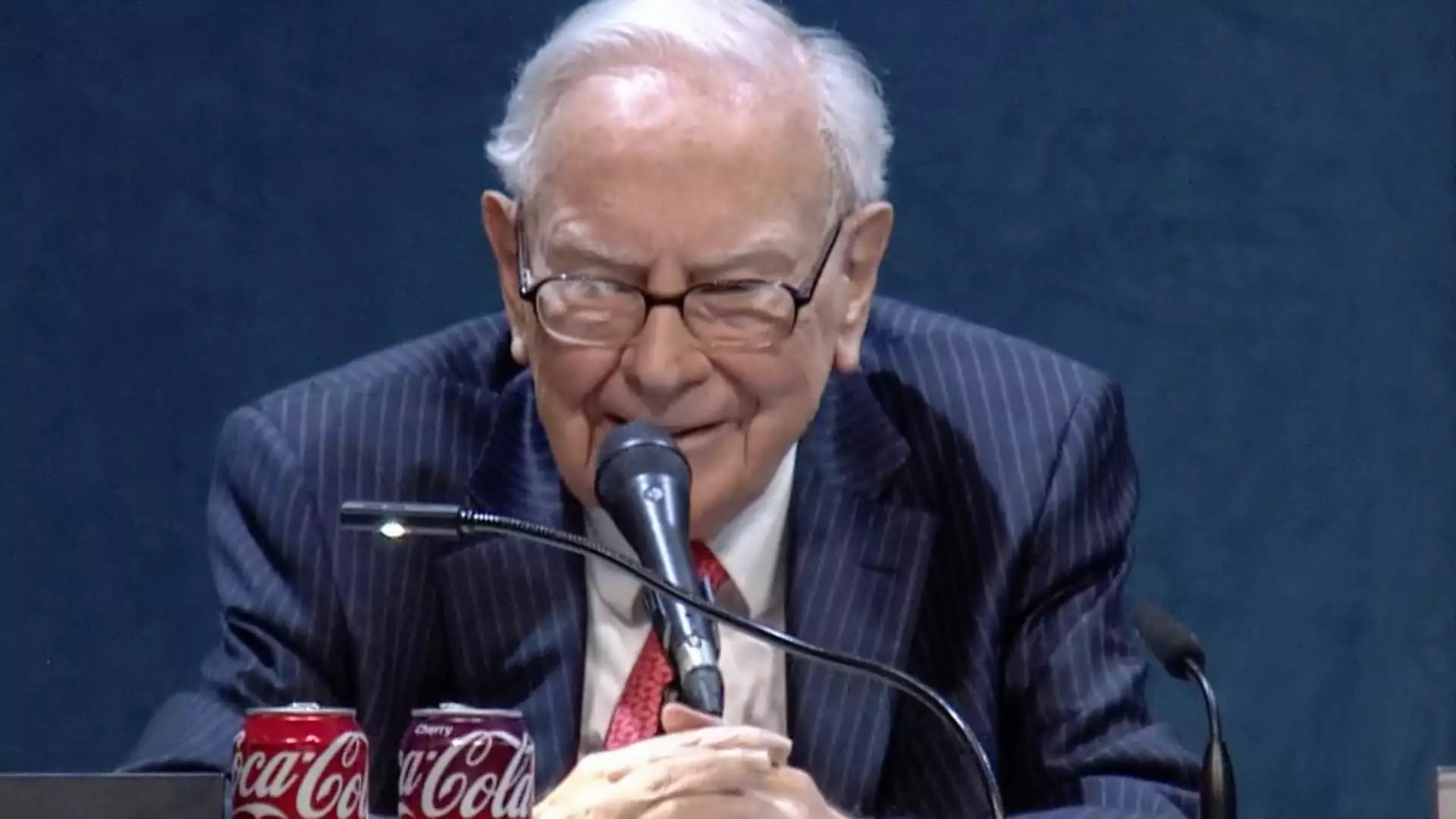Warren Buffett’s Berkshire Hathaway is often regarded as a bellwether for corporate America, representing a broad spectrum of industries—from insurance to energy to retail. Yet, the conglomerate’s recent quarterly report has raised serious concerns, revealing a worrying 14% decrease in operating earnings compared to the same period last year. This decline signals an undercurrent of instability within the American economic landscape that demands our attention. Instead of merely chalking this up to momentary setbacks, we must scrutinize the broader implications of such figures. When a company as traditionally robust as Berkshire shows vulnerability, it potentially foreshadows more significant issues across various sectors.
During the first quarter of 2025, Berkshire’s operating earnings fell to a staggering $9.64 billion, down from $11.22 billion a year prior. Analysts, already cautious, had predicted even lower figures, but the magnitude of the decline, driven primarily by a catastrophic plunge in insurance-underwriting profits—a staggering 48.6%—is alarming. The loss was exacerbated by unforeseen environmental catastrophes like the Southern California wildfires, resulting in a reported loss of $1.1 billion. Such losses prompt essential questions: How prepared are corporations for unexpected calamities? Is there a systemic flaw in risk assessment practices, not just at Berkshire but across the board?
Currency Blues: The Hidden Costs of a Weak Dollar
Additionally, Berkshire faced teeth-gritting losses attributed to currency fluctuations. The dollar’s decline during the quarter resulted in nearly $713 million lost to foreign exchange issues, a stark contrast to the profitable forex gains of the previous year. This volatility invites scrutiny into how such financial instruments affect a company’s bottom line and shareholder value. The increasing complexity of global markets means that corporations can no longer shield themselves from the whims of currency movements. Businesses must evolve and integrate strategies that mitigate these risks, especially if they continue to expand operations internationally.
To compound matters, Berkshire Hathaway’s challenges don’t just stem from internal misfortunes; President Trump’s trade tariffs and ongoing geopolitical uncertainties only serve to cloud the economic forecast further. The company admitted that it currently lacks the ability to predict the repercussions of these tariffs on its operations. Such hesitance signals a significant shift in corporate governance’s expectations and responsibilities. Leaders are now compelled to navigate a labyrinth of political and economic complexities that extend far beyond traditional business strategies.
Cash Reserves: A Double-Edged Sword
Despite the downturn in earnings, Berkshire’s cash hoard swelled to an eye-watering $347 billion. While this excessive liquidity might project a veneer of stability, it also highlights a troubling trend: Buffett opted not to capitalize on the stock market’s low points to expand his investments. Instead, Berkshire became a net seller of stocks for the tenth consecutive quarter. This hesitancy raises significant questions about the company’s future direction and the broader investment climate. Is Berkshire’s cautious approach indicative of a larger trend in corporate America, where businesses are wary of committing to growth amid rising uncertainties?
Moreover, despite the prevailing doom in earnings, it is curious that Class A shares of Berkshire are up nearly 19% amid a rambling S&P 500’s decline of 3.3%. This divergence begs further inquiry into investor sentiment and market confidence. Are people sensationalizing the value of certain stocks while disregarding the fundamental valuations, considering the intricate web of economic factors at play?
A Turning Point for Corporate Management?
What becomes unmistakably clear from Berkshire Hathaway’s recent earnings shake-up is that companies must embrace a new era of transparency and adaptability. The corporate world cannot afford to stick its collective head in the sand regarding environmental, geopolitical, and economic challenges. Stakeholders are no longer content with glossed-over reports that fail to illuminate underlying issues.
In this evolving landscape, chief executives and boards must recalibrate their strategies to ensure that they not only address immediate financial concerns but also prepare for future uncertainties. The era of traditional risk management is fading, and a proactive, comprehensive approach to addressing these multifaceted threats is essential. As professional navigators of commercial waters, business leaders now more than ever need to steer their ships through stormy seas with both foresight and adaptability, lest they too find themselves at the mercy of the unpredictable tides of the marketplace.

